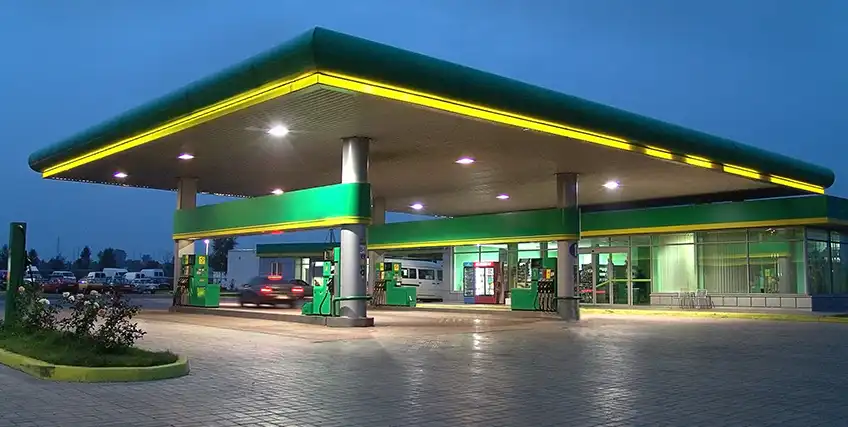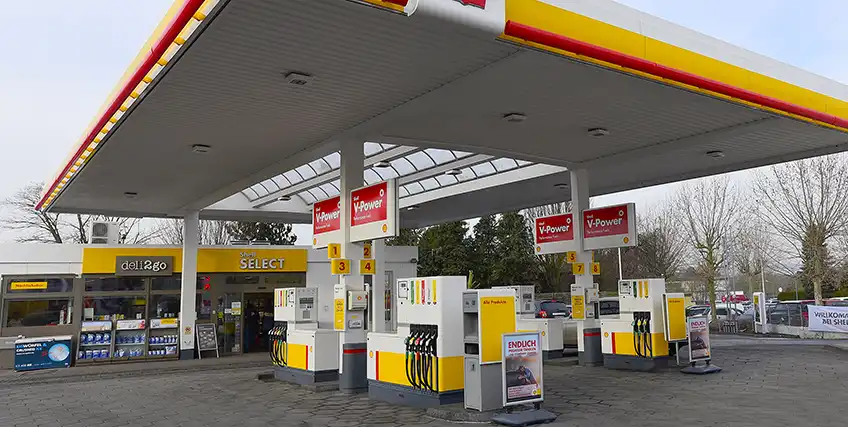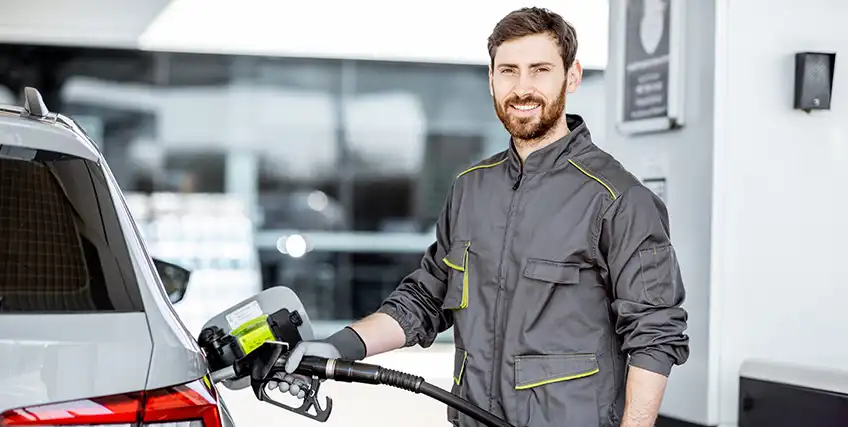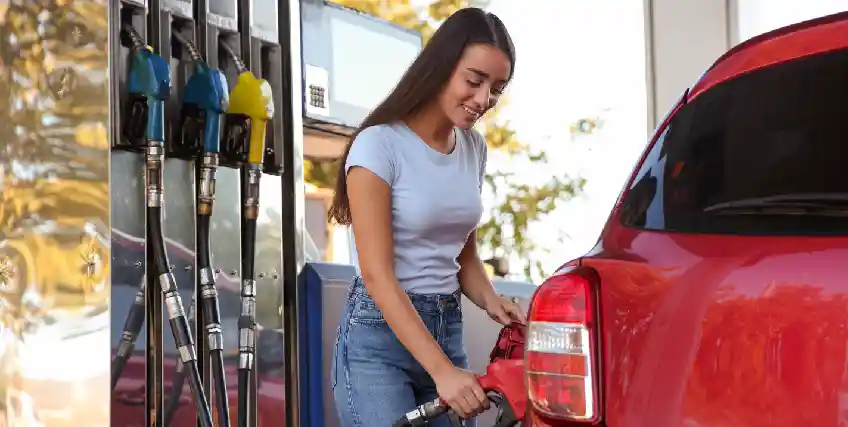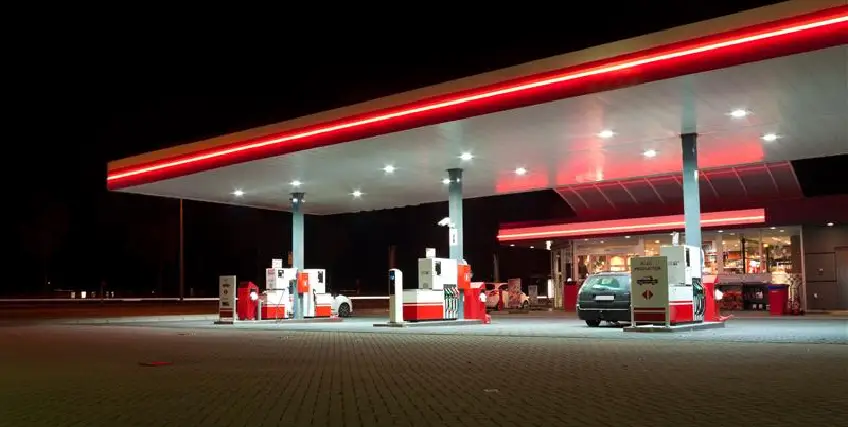Fill Up on Funds with Gas Station Loans
Explore a wide range of gas station loans and financing offered at Biz2Credit to accelerate the growth of your business.
Looking for Business Financing?
Apply now for flexible business financing. Biz2Credit offers term loans, revenue-based financing, lines of credit, and commercial real estate loans to qualified businesses.
Set up a Biz2Credit account and apply for business financing
Understanding Gas Station Loans
Gas station loans are specialized financing solutions designed to help gas station owners manage, grow, or start their businesses. Whether you’re purchasing an existing station, upgrading equipment, managing fuel inventory, or expanding into convenience store offerings, these gas station business loans provide the capital needed to keep your operations running smoothly.
The gas station industry plays an important role in the economy but operates in a dynamic and competitive financial environment. Rising fuel costs, fluctuating market demands, and regulatory compliance create unique challenges for owners. At the same time, evolving consumer behavior such as the growing demand for electric vehicle charging stations and enhanced convenience store services, offers new opportunities for growth.
Access to gas station funding is often the key to navigating these complexities, enabling owners to stay competitive, adapt to trends, and seize expansion opportunities. Gas station loans bridge the gap, helping business owners turn industry challenges into avenues for success.
Why Choose Biz2Credit for Gas Station Loans?
At Biz2Credit, we understand the unique financial challenges and opportunities that gas station owners face. So, if you are looking for gas station funding, you can explore our customized financing options that might fit your business needs. Whether you’re looking to expand, upgrade equipment, manage inventory, or improve cash flow, we have the right gas station financing requirements.
Our quick and easy application process coupled with rapid funding availability ensures a hassle-free experience when securing a loan to buy a gas station. Here the expert funding specialists work closely with you to find the best gas station financing solution, offering competitive rates and flexible terms.
Backed by years of experience and trusted by thousands of small business owners, Biz2Credit is committed to helping gas station operators thrive in a competitive market. Choose us for our personalized approach, quick turnaround, and proven track record of delivering results.
Our Strengths:
- Repayment Simplicity: We have simple repayment options for gas station loans with flexible repayment terms. See your loan payment schedule and make payments anytime in your Biz2Credit account.
- Dedicated Funding Specialists: Consult a funding specialist to determine what financing options fit your business best or get help at any time along the way as you complete our online funding application.
Upgrade and Expand with Gas Station Business Loans
Gas station loans are available in a range of options, specifically designed to meet the individual requirements of gas station owners and support the expansion of fuel businesses. SBA loans for gas stations are a popular option, offering low-interest rates and longer repayment terms, making them ideal for major investments like purchasing a station or upgrading fuel tanks.
Equipment financing is another excellent choice, helping owners buy or lease essential equipment such as fuel pumps, refrigeration units, or car wash systems. For immediate cash flow needs, working capital loans provide short-term financial support to cover operational expenses like payroll, inventory, or marketing. Additionally, business lines of credit offer flexibility, allowing owners to draw funds as needed for unexpected repairs or seasonal slowdowns.
These loans empower gas station owners to stay competitive, expand their offerings, and meet compliance requirements, ensuring long-term growth and sustainability in a dynamic market. With the right financing, your gas station business can thrive like never before.
Types of Gas Station Financing Offered by Biz2Credit
Running a gas station presents distinct challenges, such as overseeing daily operational expenses and funding major upgrades or expansions. Biz2Credit provides financing solutions like term loans and revenue-based financing to assist gas station proprietors in purchasing equipment, taking over a gas station business, or opening another new franchise. With competitive rates, flexible terms, and personalized support, you can choose the right option to fuel your business growth and ensure long-term success.
1. Term Loans for Gas Stations
Term loans is a reliable option for gas station owners aiming for long-term growth. This type of financing option can be used as gas station funding too. It provides a lump sum that is repaid over a fixed period, offering stability and predictability. These commercial gas station loans are particularly well-suited for large-scale investments, such as remodeling your gas station, adding convenience store features, or installing new fuel systems.
Term loans can also be utilized to boost your workforce, invest in marketing campaigns, or enhance your inventory selection, ultimately driving customer satisfaction and sales. Biz2Credit’s term loans are designed to align with your strategic business goals, featuring competitive rates, straightforward application processes, and expert guidance to help you succeed.
Eligibility Criteria:
- A credit score of 650 and above.
- At least 18 months in business.
- Annual monthly revenue of $250,000 or more.
2. Revenue-Based Financing for Gas Stations
For gas station owners seeking adaptable funding, revenue-based financing offers flexibility. Your payment is calculated based on a percentage of estimated future receivables.
This gas station financing can be used for diverse needs, such as replenishing inventory, addressing urgent repairs, or launching promotions during peak seasons. Biz2Credit’s revenue-based financing ensures quick access to funds, enabling you to tackle immediate challenges or seize growth opportunities without added financial strain. Our customized approach prioritizes your gas station’s unique revenue patterns to make repayment stress-free and efficient.
Eligibility Criteria:
- A credit score of 575 and above.
- A minimum of 12 months in operation.
- Annual monthly revenue of $250,000 or more.
3. Commercial Real Estate Loans for Gas Stations
For owners looking to expand, renovate, or secure prime locations, commercial real estate bridge loans for a gas station are a great option This funding supports property purchases, refinancing existing loans, or large-scale upgrades, such as adding service bays or increasing fuel storage capacity. It also allows you to enhance your property’s appearance, improving customer experience and attracting more foot traffic.
With competitive interest rates and fixed repayment plans, Biz2Credit helps you maximize your property’s potential while maintaining financial stability. Our team works closely with you to explore growth opportunities and other complexities, ensuring a seamless process that sets your gas station business up for long-term success.
Eligibility Criteria:
- A credit score of 650 and above.
- Minimum 18 months in business.
- Property as collateral.
- Annual monthly revenue of $250,000 or more.
How Can you Utilize Gas Station Loans?
Running a gas station involves unique challenges, and having access to funds can unlock opportunities for growth and stability. Here’s how gas station financing can benefit your business:
1. Expand Your Operations - Gas station loans can help you acquire additional locations or franchises, giving you the chance to expand your presence and increase revenue potential in competitive markets.
2. Upgrade Fuel Systems - Modernizing fuel pumps, adding alternative energy options like EV chargers, or upgrading storage tanks can improve efficiency, meet regulatory requirements, and attract environmentally conscious customers.
3. Enhance Curb Appeal - Use gas station financing options to renovate your station, improve signage, and revamp landscaping to draw more customers. A fresh, well-maintained appearance builds trust and increases foot traffic.
4. Add Convenience Store Services - Boost your profitability by adding or upgrading an in-store convenience store. Financing can help you stock shelves, install point-of-sale systems, or build additional space for high-demand items.
5. Manage Cash Flow - Financing can cover seasonal dips or unexpected expenses, such as equipment repairs or inventory replenishment, ensuring smooth operations without disrupting your cash flow.
6. Implement Advanced Technology - Integrate advanced payment systems, security cameras, and automation tools to streamline operations and enhance customer experiences, increasing loyalty and efficiency.
7. Support Marketing Initiatives - Launch marketing campaigns, loyalty programs, or promotional events with the support of financing to attract more customers and build your brand.
Trusted by Thousands of Small Business Owners in America.**
Simply because we get what you go through to build a business you believe in.
**Disclaimer: All stories are real, as told by real business owners. Customers do not receive monetary compensation for telling their stories.
From One Entrepreneur to Another: We Get You
We understand what's behind building a business you believe in.
All stories are real, as told by real business owners. Customers do not receive monetary compensation for telling their stories.



Small Business Loans in Gas Station Loans Articles
Top Financing Strategies for Adding Convenience Services to Your Gas Station
Gas stations have long been hubs for fuel, but with changing consumer demands and increasing competition, many owners are exploring
Top 10 Tips for Finding a Perfect Gas Station Location
Opening a gas station location can be a very lucrative venture. According to Projection Hub, the average sole proprietorship gas station makes $1.3 million in annual revenue.
Key Challenges of Getting Gas Station Financing
Many individuals considering entrepreneurship decide to go into the gas station and/or convenience store industries
How to Budget for the Cost of Employee Turnover for a Gas Station
One of the biggest factors affecting your small business’ bottom line or profitability is high employee turnover.
Can First-Time Buyers Meet Gas Station Financing Requirements
Acquiring a gas station is a promising way for entrepreneurs to step into a lucrative, service-based gas station industry.
What Lenders Look for in Gas Station Loan Applications: A Roadmap for First-Time Applicants
Gas station loans are necessary for many small business owners, whether you’re building a new gas station, upgrading a gas station you already own
FAQs on Gas Station Loans
1. What challenges might I face when seeking gas station financing?
Gas station financing can be complex due to several factors. First, the initial investment required is often substantial, as purchasing or leasing the property, upgrading equipment, and maintaining operations can be costly. Second, gas stations often experience fluctuating cash flows depending on fuel prices, market demand, and seasonal variations, which can concern various financial players. Additionally, environmental regulations and liabilities, such as ensuring proper fuel storage and spill prevention, can complicate the process of securing a loan to buy a gas station. Financial platforms may require proof of compliance with local environmental laws and insurance coverage for potential liabilities
2. What documents are typically required when applying for a gas station loan?
When applying for a gas station loan, an extensive set of documents are required to assess the small business owner’s creditworthiness and the business's potential. This includes personal and business tax returns for at least two years, income statements, balance sheets, and bank statements to demonstrate financial stability. A detailed business plan outlining your strategy, market analysis, and expected financial performance is also essential. Additionally, proof of licenses, permits, and compliance with environmental regulations might be required. If collateral is involved, documentation proving ownership or valuation of the assets may be required. Having these documents prepared can streamline the application process.
3. Can I obtain financing to lease a gas station rather than purchase one?
Yes, financing options are available for leasing gas stations, though they may differ from traditional purchase loans. Financial platforms offering leasing loans typically focus on the lease terms, the business’s potential cash flow, and the applicant's creditworthiness. Lease financing may cover initial costs such as security deposits, working capital, and equipment upgrades needed to start operations.
4. Are there specific loans available for gas station equipment financing?
Yes, equipment financing loans are specifically designed to help gas station owners acquire essential tools and machinery. These business loans for gas stations typically allow you to purchase or upgrade fuel pumps, storage tanks, point-of-sale systems, car wash equipment, and signage. Equipment loans often use the purchased equipment as collateral, reducing the risk for financial platforms and potentially resulting in lower interest rates. Repayment terms are generally tied to the useful life of the equipment, ensuring manageable monthly payments.
Term Loans are made by Itria Ventures LLC or Cross River Bank, Member FDIC. This is not a deposit product. California residents: Itria Ventures LLC is licensed by the Department of Financial Protection and Innovation. Loans are made or arranged pursuant to California Financing Law License # 60DBO-35839


